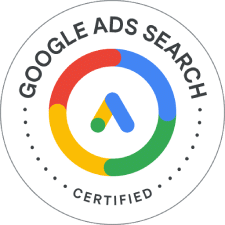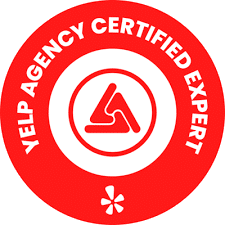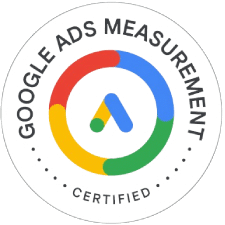In today’s highly digitalized business environment, finding the right internet marketing agency can be a make-or-break decision for your company. The right partner can help you reach your target audience, increase brand awareness, drive traffic, generate leads, and boost conversions. On the other hand, selecting the wrong agency can lead to wasted budget, poor communication, and subpar performance.
With thousands of agencies claiming to be the best, how do you identify the right one for your needs?
This comprehensive guide provides proven, practical tips for evaluating and choosing an internet marketing agency that aligns with your goals, delivers measurable results, and helps your business thrive in a competitive online marketplace.
What Does an Internet Marketing Agency Do?
Before you start your search, it’s essential to understand what an internet marketing agency does. A full-service digital marketing agency typically offers services such as:
-
Content Creation and Marketing
-
Email Marketing
-
Conversion Rate Optimization (CRO)
-
Reputation Management
-
E-commerce Marketing
-
Local SEO and Map Optimization
Some agencies specialize in specific services or industries (e.g., legal, healthcare, e-commerce), while others provide a comprehensive suite of digital marketing solutions. Understanding your business needs will help you determine what kind of agency is the best fit.
Tip #1: Clearly Define Your Business Goals
The first and most crucial step in your agency search is to define what you want to achieve. Internet marketing should not be approached with a vague goal, such as “get more traffic.” Instead, consider specific objectives such as:
-
Increasing website leads or sales
-
Growing your local customer base
-
Improving your online reputation
-
Launching and scaling a new product or service
-
Enhancing your visibility in search engines
-
Improving user experience on your website
When you know what you want, you can evaluate agencies based on their ability to help you reach those goals.

Tip #2: Choose an Agency with Relevant Experience
Experience matters—especially experience in your specific industry. An agency that understands the nuances of your market, customer behavior, and competitive landscape will be better positioned to produce results.
When researching agencies, ask the following:
-
Have they worked with businesses in your industry?
-
Do they understand your audience and buying cycle?
-
Can they provide case studies or examples of relevant success stories?
-
Are they familiar with any specific platforms or regulations your industry follows?
An agency with experience in your vertical will bring tested strategies, faster ramp-up times, and fewer missteps.
Tip #3: Look for Transparency and Clear Communication
Honesty, openness, and responsiveness are critical traits in a marketing partner. Avoid agencies that make vague claims, dodge pricing questions, or fail to explain their methods.
Key communication practices to look for:
-
Clear timelines and deliverables
-
Regular reporting and strategy calls
-
Access to performance dashboards or analytics
-
Transparency about methods, costs, and tools
During your discovery calls, note how well the agency listens to your concerns, answers your questions, and explains their strategies in simple terms. If they overcomplicate things or make unrealistic promises (e.g., “rank #1 in Google in a week”), proceed with caution.
Tip #4: Evaluate Their Website and Online Presence
An internet marketing agency’s digital presence reflects its capabilities. If their website is outdated, poorly designed, or lacking in SEO fundamentals, it may be a sign that they do not prioritize the very services they offer.
When evaluating their site, consider:
-
Is the website modern, responsive, and fast?
-
Does it rank well in search engines for relevant terms?
-
Are they publishing helpful, optimized blog content?
-
Do they have testimonials, case studies, or client logos?
-
Are their social media channels active and engaging?
A high-performing agency should practice what it preaches and have a digital presence that backs up its marketing expertise.
Tip #5: Ask About Strategy, Not Just Tactics
Good marketing isn’t just about performing tasks—it’s about executing a strategy that aligns with your brand and long-term goals. Avoid agencies that focus only on vanity metrics (likes, followers, clicks) and instead seek those who emphasize:
-
Strategic planning based on your business objectives
-
Conversion-driven campaigns, not just traffic generation
-
Funnel development and user journey mapping
-
Data-driven decision-making
-
Continuous optimization and testing
Ask how the agency will tailor a digital strategy for your specific goals and how they will measure success beyond impressions or clicks.

Tip #6: Understand Their Approach to SEO and Paid Ads
Two of the most common digital marketing services are SEO and paid advertising (Google Ads, Meta Ads, etc.). Not all agencies are equally skilled in both, and some may favor one channel over another.
Questions to ask about SEO:
-
What is your process for keyword research?
-
How do you approach technical, on-page, and off-page SEO?
-
Do you create content in-house or work with freelancers?
-
How do you build links?
-
How long before I can expect to see results?
Questions to ask about paid ads:
-
Are your Google Ads specialists certified?
-
How do you structure campaigns and track conversions?
-
Will you conduct A/B testing and optimize creatives?
-
What is your reporting cadence?
An agency should offer a balanced approach to both organic and paid traffic, knowing when to scale each accordingly.
Tip #7: Review Client Testimonials and Case Studies
Client feedback offers valuable insights into how an agency works. Look for:
-
Verified Google Reviews and testimonials on platforms like Clutch or Yelp
-
Case studies that outline challenges, solutions, and measurable results
-
Client video interviews or quotes with names and companies
-
References you can contact directly (if needed)
Don’t just focus on positive reviews—look for patterns in the feedback. If multiple clients mention poor communication or missed deadlines, take it seriously.
Tip #8: Ask Who Will Work on Your Account
In some agencies, the person you speak to during the sales process isn’t the one who will manage your campaigns. It’s important to know:
-
Who will be your account manager?
-
Will your work be done in-house or outsourced?
-
How many clients does your account manager handle?
-
What are the credentials of the people managing your SEO or PPC?
You want to work with a team that is experienced, available, and dedicated to your success.
Tip #9: Beware of One-Size-Fits-All Packages
Every business has unique needs. Be cautious of agencies that push fixed packages without first understanding your goals, audience, and industry.
Look for agencies that:
-
Conduct thorough discovery and audits before recommending a plan
-
Offer flexible pricing or retainer models
-
Customize deliverables based on your growth stage
-
We are willing to scale services as your needs evolve
Marketing should be treated as an evolving partnership, not a static checklist of services.
Tip #10: Consider Their Reporting and Metrics
One of the most important aspects of a successful partnership is performance tracking. A professional agency will provide transparent reporting that is directly tied to your KPIs.
Good agencies provide:
-
Monthly or bi-weekly performance reports
-
Custom dashboards through tools like Google Looker Studio, SEMrush, or HubSpot
-
Analysis of data with actionable recommendations
-
Regular review meetings to assess progress and make adjustments
Ensure you understand how they track ROI and how they manage underperforming campaigns.

Bonus Tip: Look for Long-Term Partnership Potential
Internet marketing isn’t something that can be mastered in a month. Results take time, and optimization is a continuous process. Therefore, your relationship with an agency should be viewed as a long-term partnership—not a one-off engagement.
Choose an agency that:
-
Treats your success as their own
-
Communicates proactively
-
Adjusts to market changes and trends
-
Seeks to improve over time, not just maintain status quo
The best agencies grow with you and act as a strategic extension of your team.
Final Thoughts: Make the Right Investment
Choosing the right internet marketing agency is an investment in your business growth. It requires due diligence, clarity about your goals, and a commitment to finding a team that not only understands digital marketing but also understands your brand, your audience, and your potential.
Avoid flashy promises or low-cost shortcuts. Instead, look for:
-
Proven expertise
-
Transparent communication
-
Custom strategy
-
Aligned values
-
Measurable performance
At Search Engine Projects, we specialize in helping businesses grow through personalized, data-driven marketing strategies. Our team combines SEO, PPC, social media, website optimization, and content creation to deliver measurable results.
If you’re looking for a trustworthy and experienced internet marketing agency, contact us today for a complimentary consultation. We’d love to learn about your goals and explore how we can help you achieve them.













